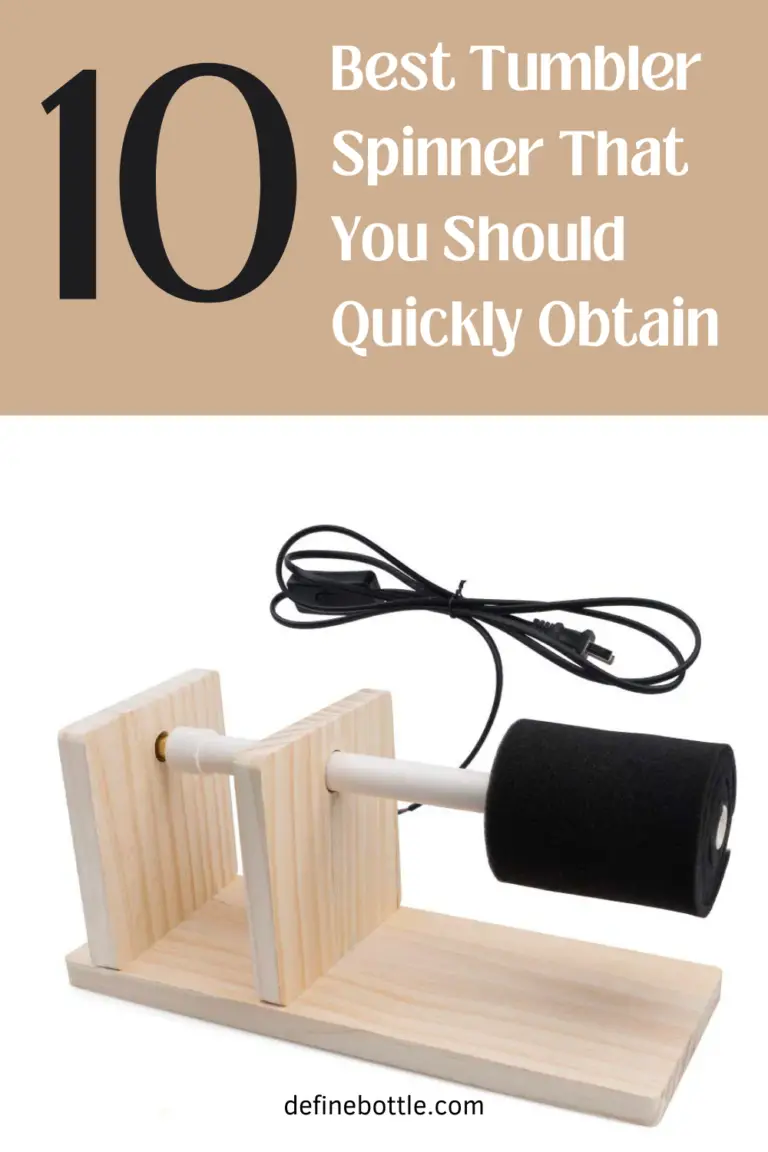As a homeowner, one of the most frustrating aspects of maintaining a clean and healthy home is dealing with pests. From ants and rodents to bed bugs and termites, these unwanted guests can cause significant damage to your property and even threaten your family’s health. While it’s true that professional pest control services can be very effective, they can also be expensive and may involve the use of harsh chemicals that you’d prefer to keep out of your home. If you’re looking for a more cost-effective and environmentally friendly way to keep pests at bay, DIY pest control may be the solution you need.
In this article, I will share my expert tips for DIY pest control, discussing the importance of pest control for a healthy home, and providing a comprehensive list of the top 10 DIY home pest control methods. Additionally, I will offer prevention pest control tips to help you maintain a pest-free household, and discuss natural and chemical-based DIY pest control solutions. Finally, I will provide guidance on when to call a professional pest control service, and highlight key safety tips and precautions you should follow when implementing these DIY methods.
So, whether you’re dealing with a current infestation or simply looking to prevent future problems, let’s dive into the world of DIY pest control and explore some effective methods that will help you maintain a pest-free home.
Contents
- Importance of Pest Control for a Healthy Home
- Top 10 DIY Home Pest Control Methods
- Prevention Pest Control: Tips for a Pest-Free Home
- Natural DIY Pest Control Solutions
- Chemical-Based DIY Pest Control Options
- DIY Pest Control for Common Household Pests
- When to Call a Professional Pest Control Service
- DIY Pest Control Safety Tips and Precautions
- Conclusion: Maintaining a Pest-Free Household with Expert Tips
Importance of Pest Control for a Healthy Home
Pest control is not just about maintaining a clean and attractive home; it’s also about safeguarding the health and well-being of your family. Pests such as rodents, insects, and other creatures carry diseases and parasites that can pose serious health risks to humans. In addition to transmitting diseases, pests can also trigger allergies and asthma attacks, especially in children.
Furthermore, pests can cause structural damage to your home. Termites, for example, can weaken the structural integrity of your home by feeding on wood, while rodents can gnaw through wiring, insulation, and even plumbing. This damage can be costly to repair and, if left untreated, can lead to more severe problems down the line. By implementing effective DIY pest control methods, you can help protect your family’s health and the long-term value of your property.
If you choose a professional service, you should check and find a recommended service here.
Top 10 DIY Home Pest Control Methods
- Keep your home clean and clutter-free: Pests are attracted to food sources, so maintaining a clean home is essential for preventing infestations. Regularly clean countertops, floors, and appliances, and promptly clean up spills and crumbs. Additionally, reduce clutter in your home, as pests love to hide in dark, cluttered areas.
- Seal entry points: Inspect your home’s exterior for any cracks, gaps, or holes that pests could use to enter your home. Seal these entry points using caulk or other appropriate materials to prevent pests from entering.
- Properly store food and waste: Keep food in airtight containers and store them in cabinets or the refrigerator. Dispose of garbage regularly and use a trash can with a tight-fitting lid to prevent pests from accessing your waste.
- Eliminate sources of standing water: Standing water can attract pests like mosquitoes and provide a breeding ground for them. Regularly check your home for leaking pipes, clogged gutters, and other sources of standing water, and address any issues promptly.
- Introduce natural predators: Some pests can be controlled by introducing their natural predators into your home or garden. For example, ladybugs can help control aphids, while certain types of birds can help control insect populations.
- Use traps: There are many types of traps available for different pests, from mouse traps to sticky traps for insects. Research the most effective traps for the specific pests you are dealing with and place them strategically in your home.
- Apply natural repellents: Many essential oils and other natural substances can act as effective pest repellents. For example, peppermint oil can help deter ants, while lavender can help repel moths and other insects.
- Use DIY pest control sprays: There are many DIY pest control spray recipes available that use natural ingredients like vinegar, baking soda, and essential oils. Research the best formulas for the pests you’re dealing with and apply them as needed.
- Implement physical barriers: Depending on the pests you’re dealing with, physical barriers like screens, door sweeps, and netting can help keep them out of your home.
- Regularly inspect your home and garden: Regular inspections can help you identify potential pest problems early, allowing you to address them before they become more serious.
Prevention Pest Control: Tips for a Pest-Free Home
In addition to the above DIY pest control methods, there are several prevention pest control measures you can take to help maintain a pest-free home. These include:
- Regularly inspect your home: Regular inspections can help you identify potential pest problems early, allowing you to address them before they become more serious.
- Practice good sanitation: Keep your home clean and free of clutter to eliminate potential food sources and hiding spots for pests.
- Properly store food: Store food in airtight containers and dispose of waste in a timely manner to prevent pests from accessing it.
- Seal entry points: Inspect your home for cracks and gaps and seal them to prevent pests from entering.
- Eliminate sources of standing water: Regularly check your home for sources of standing water and address any issues promptly.
By implementing these prevention pest control measures, you can help maintain a pest-free home and avoid the need for more intensive DIY pest control solutions.
Natural DIY Pest Control Solutions
There are many natural DIY pest control solutions available that can help you effectively manage pests without the use of harsh chemicals. Some of these solutions include:
- Essential oils: Many essential oils have been found to be effective in repelling pests, including peppermint, lavender, eucalyptus, and lemongrass. You can create your own DIY pest control spray using a mixture of water, a few drops of essential oil, and a small amount of dish soap.
- Diatomaceous earth: Diatomaceous earth is a natural, non-toxic powder made from the fossilized remains of tiny aquatic organisms. When pests come into contact with the powder, it causes them to dry out and die. You can sprinkle diatomaceous earth in areas where you’ve noticed pests, such as around the base of your home or in your garden.
- Herbs and spices: Some herbs and spices can help repel pests, such as basil, which can help deter flies and mosquitoes, and cinnamon, which can help repel ants. You can plant these herbs in your garden or place them in strategic locations around your home to help deter pests.
- Vinegar: Vinegar is a versatile DIY pest control solution, as it can be used both as a repellent and a cleaning agent. For example, you can use vinegar to clean surfaces in your kitchen and bathroom, which can help deter ants and other pests.
- Baking soda and sugar: A mixture of baking soda and sugar can be an effective DIY pest control solution for ants. The ants are attracted to the sugar, but when they consume the baking soda, it reacts with the acid in their digestive system, causing them to die.
By utilizing these natural DIY pest control solutions, you can effectively manage pests without resorting to potentially harmful chemical-based options.
Chemical-Based DIY Pest Control Options
While natural DIY pest control solutions can be very effective, there may be situations where chemical-based options are necessary to address a more severe infestation. Some chemical-based DIY pest control options include:
- Pesticide sprays: There are many pesticide sprays available on the market that can help control a variety of pests. Be sure to carefully read and follow the instructions on the label, and use the product only as directed.
- Insecticides: Insecticides are chemicals specifically designed to kill insects. They can be applied in various forms, such as sprays, powders, or bait stations. Again, it’s important to read and follow the label instructions carefully, and to use the product only as directed.
- Rodenticides: Rodenticides are chemicals designed to kill rodents, such as mice and rats. They are typically available in the form of bait stations or pellets. As with any chemical-based pest control option, it’s crucial to follow the label instructions and use the product only as directed.
When using chemical-based DIY pest control options, it’s important to take appropriate safety precautions, such as wearing gloves and a mask, and to keep the chemicals out ofreach of children and pets. Additionally, it’s important to properly store and dispose of any unused chemicals according to the label instructions.
While chemical-based DIY pest control options can be effective, it’s important to consider the potential risks and weigh them against the benefits before using them. In some cases, it may be safer and more effective to call in a professional pest control service.
DIY Pest Control for Common Household Pests
Different pests require different DIY pest control methods to effectively manage them. Here are some common household pests and the DIY pest control methods that are most effective for them:
- Ants: Ants are attracted to food sources, so the most effective DIY pest control method for ants is to keep your home clean and free of food debris. You can also use natural repellents such as vinegar or essential oils, or use ant baits containing boric acid.
- Bed bugs: Bed bugs are notoriously difficult to eliminate, but there are a few DIY pest control methods that can help. These include vacuuming your home regularly, washing bedding and clothing in hot water, and using bed bug traps or encasements.
- Cockroaches: Cockroaches are attracted to moisture and food sources, so keeping your home clean and dry is essential for effective DIY pest control. You can also use traps or bait stations containing boric acid to help control cockroach populations.
- Fleas: Fleas are often brought into the home by pets, so regular pet grooming and vacuuming can help control flea populations. You can also use natural flea repellents such as diatomaceous earth or essential oils.
- Mice and rats: To control mice and rats, it’s important to seal entry points and eliminate food sources. You can also use traps or bait stations containing poison to help control rodent populations.
By understanding the specific DIY pest control methods that are most effective for common household pests, you can take a targeted approach to pest management in your home.
When to Call a Professional Pest Control Service
While DIY pest control can be effective, there may be situations where it’s necessary to call in a professional pest control service. Here are some situations where professional assistance may be necessary:
- Severe infestations: If you’re dealing with a severe infestation, DIY pest control methods may not be effective. A professional pest control service can provide more intensive treatment options to eliminate the pests.
- Structural damage: If pests have caused significant structural damage to your home, it’s important to address the issue promptly to prevent further damage. A professional pest control service can help identify the source of the problem and provide a targeted solution.
- Health risks: If pests are posing a significant health risk to your family, it’s important to address the issue as soon as possible. A professional pest control service can provide effective treatment options while minimizing the use of potentially harmful chemicals.
- Lack of DIY pest control success: If you have tried DIY pest control methods without success, it may be time to call in a professional. A pest control expert can help identify the source of the problem and provide a more intensive, targeted treatment solution.
DIY Pest Control Safety Tips and Precautions
When implementing DIY pest control methods, it’s important to take appropriate safety precautions to protect yourself, your family, and your pets. Here are some key safety tips and precautions to follow:
- Read and follow all label instructions: Whether you’re using natural or chemical-based DIY pest control methods, it’s important to carefully read and follow all label instructions to ensure safe and effective use.
- Wear appropriate protective gear: When using chemical-based DIY pest control methods, it’s important to wear gloves and a mask to protect yourself from potential exposure to harmful chemicals.
- Keep chemicals out of reach of children and pets: Store all pest control chemicals in a secure location out of reach of children and pets, and dispose of them properly according to the label instructions.
- Avoid using DIY pest control methods near food or food preparation areas: To avoid contamination, it’s important to avoid using pest control methods near food or food preparation areas.
- Consider the potential risks and benefits before using chemical-based DIY pest control methods: Chemical-based DIY pest control methods can be effective, but they also come with potential risks. Before using these methods, it’s important to carefully consider the potential risks and weigh them against the benefits.
Conclusion: Maintaining a Pest-Free Household with Expert Tips
Maintaining a pest-free home is essential for safeguarding the health and well-being of your family, as well as protecting the long-term value of your property. DIY pest control methods can be an effective and cost-efficient way to keep pests at bay, but it’s important to understand the specific methods that are most effective for different pests, as well as the potential risks and benefits of different DIY pest control options.
By following the expert tips and advice outlined in this article, you can take a targeted approach to DIY pest control and maintain a clean, healthy, and pest-free home for you and your family. However, if you’re dealing with a severe infestation or are unsure about the best course of action, don’t hesitate to call in a professional pest control service for assistance. With the right approach and the right tools, you can effectively manage pests and enjoy a pest-free home.




